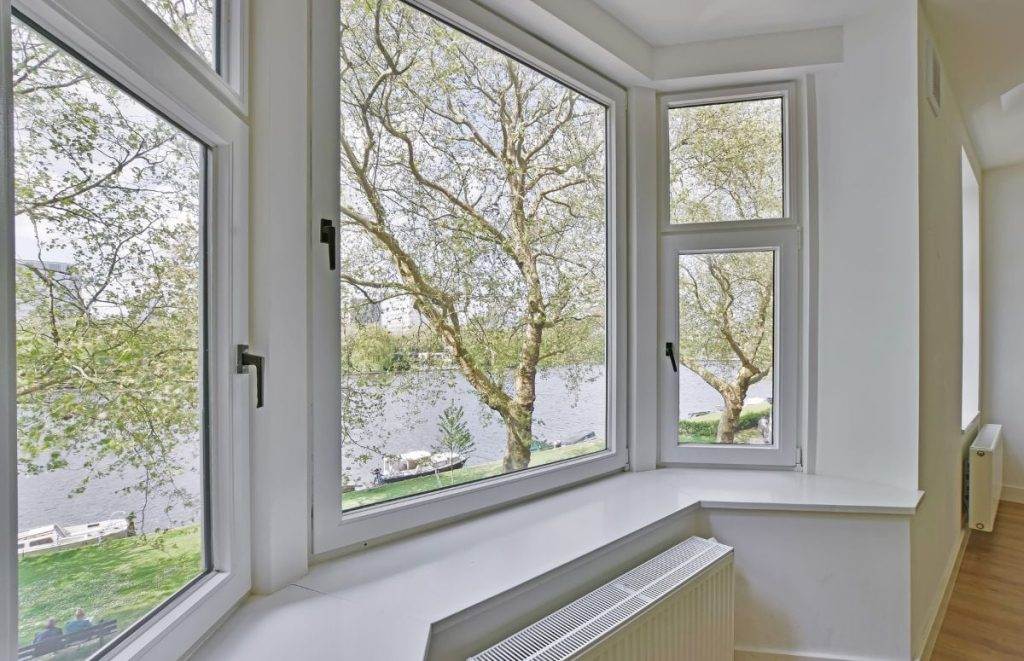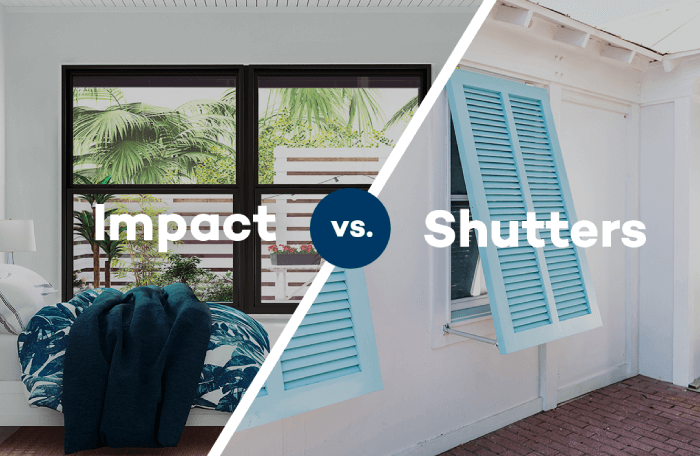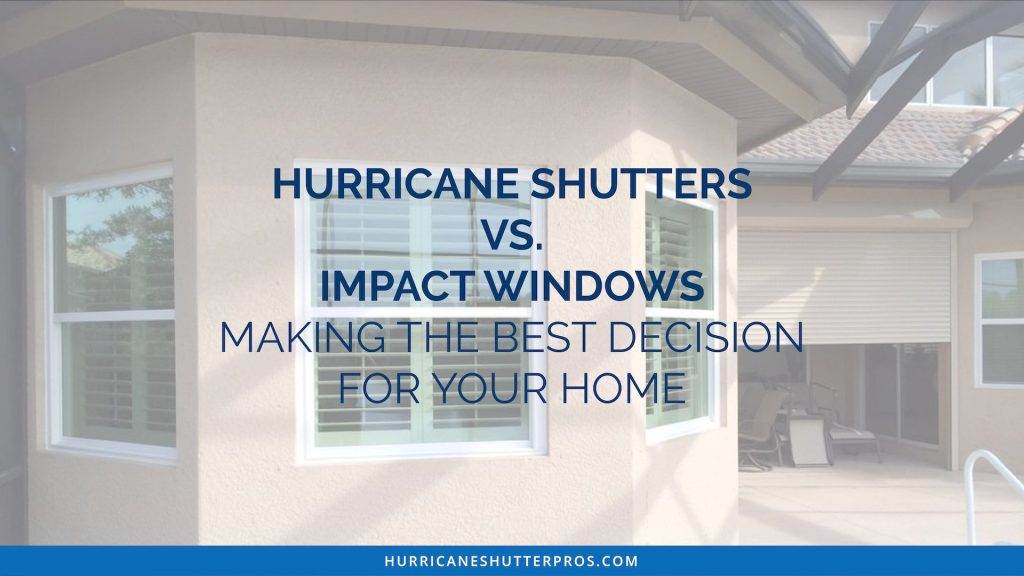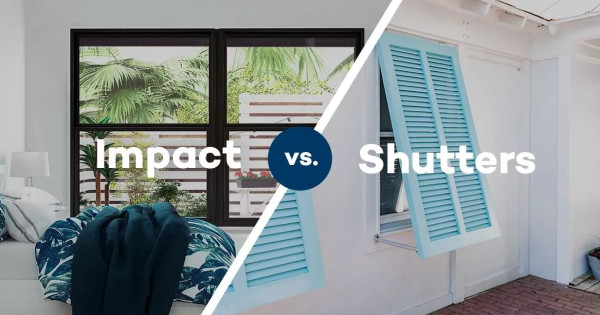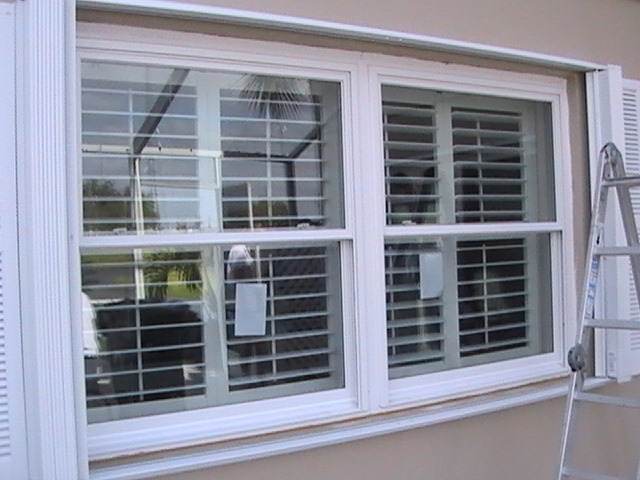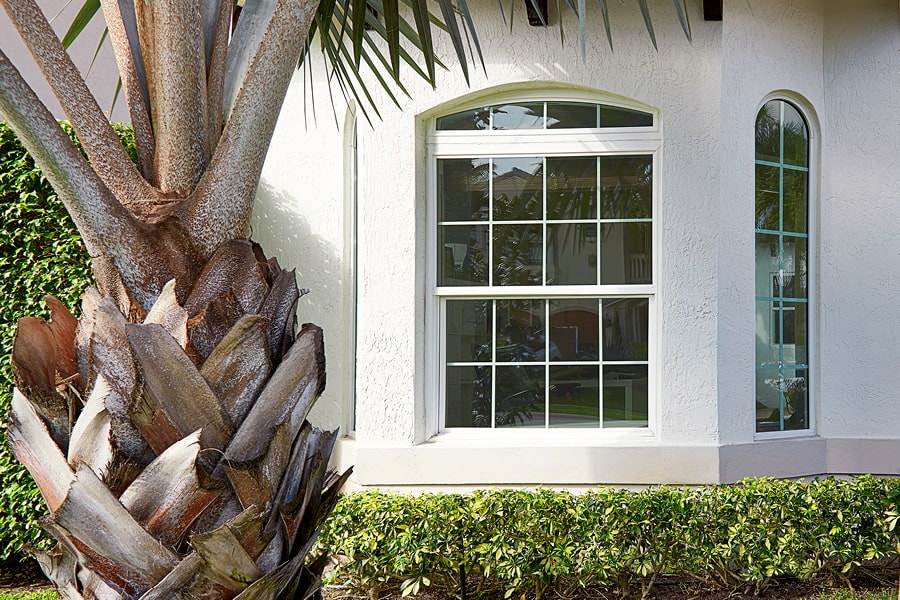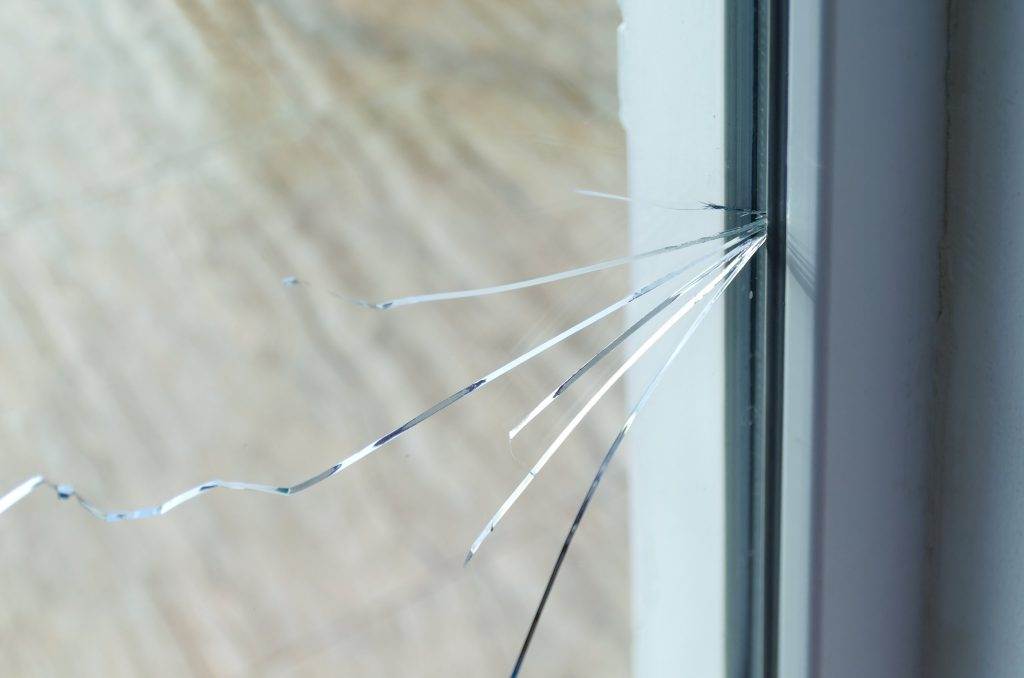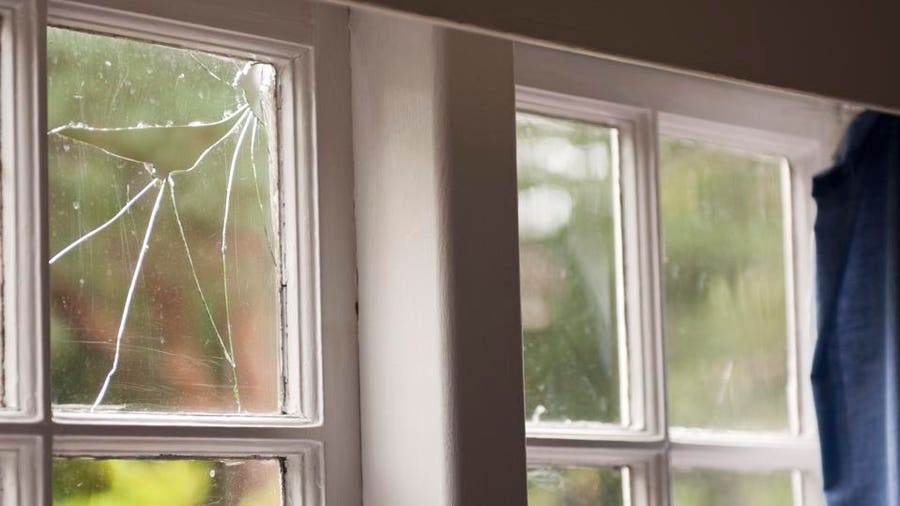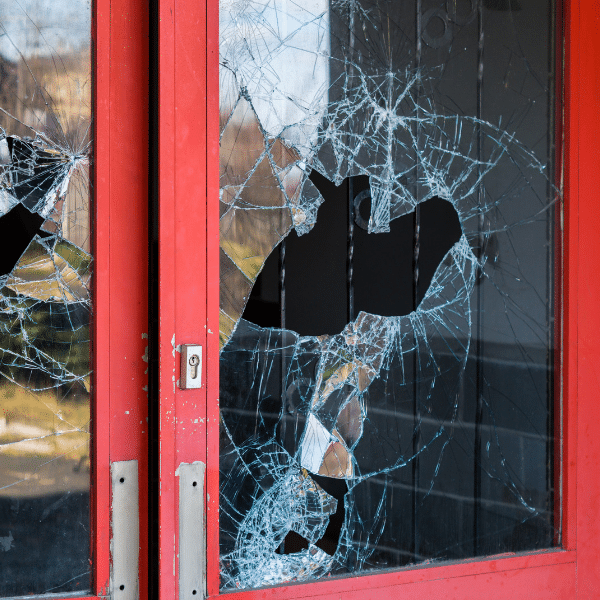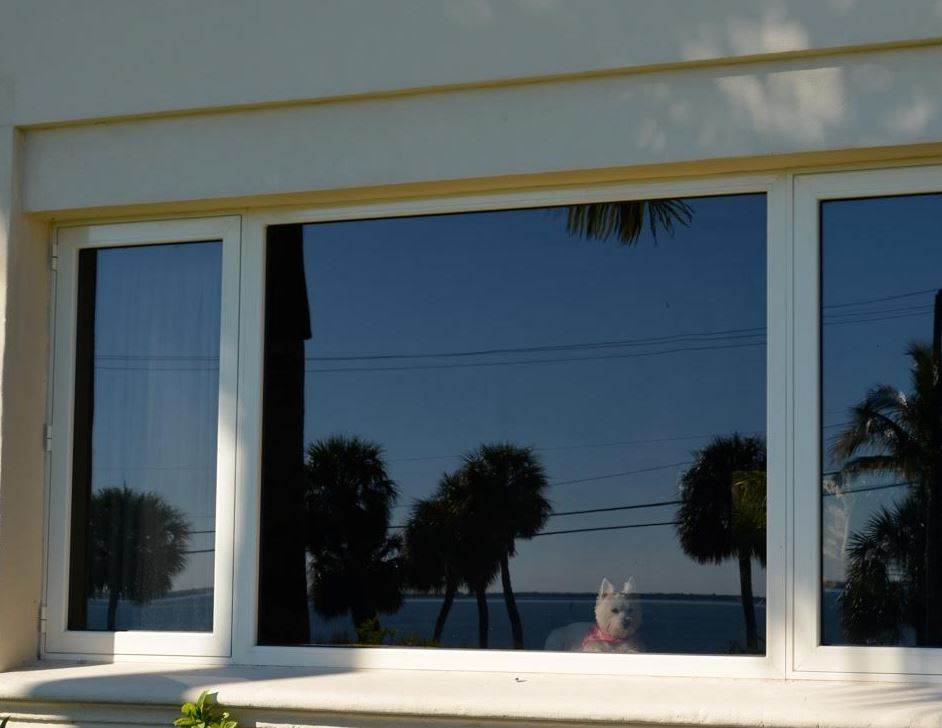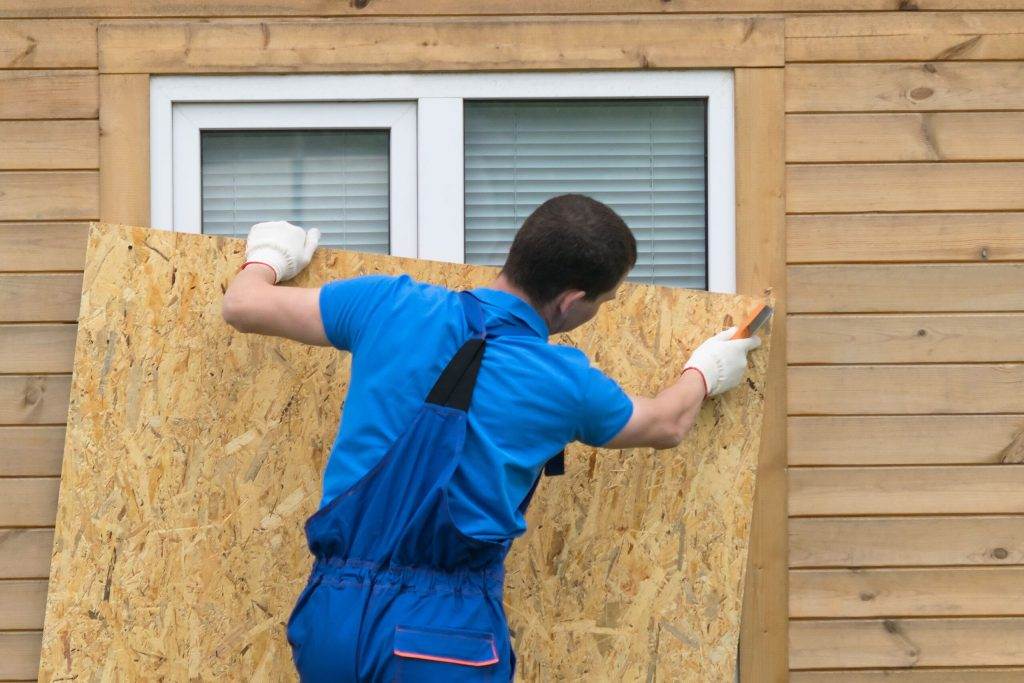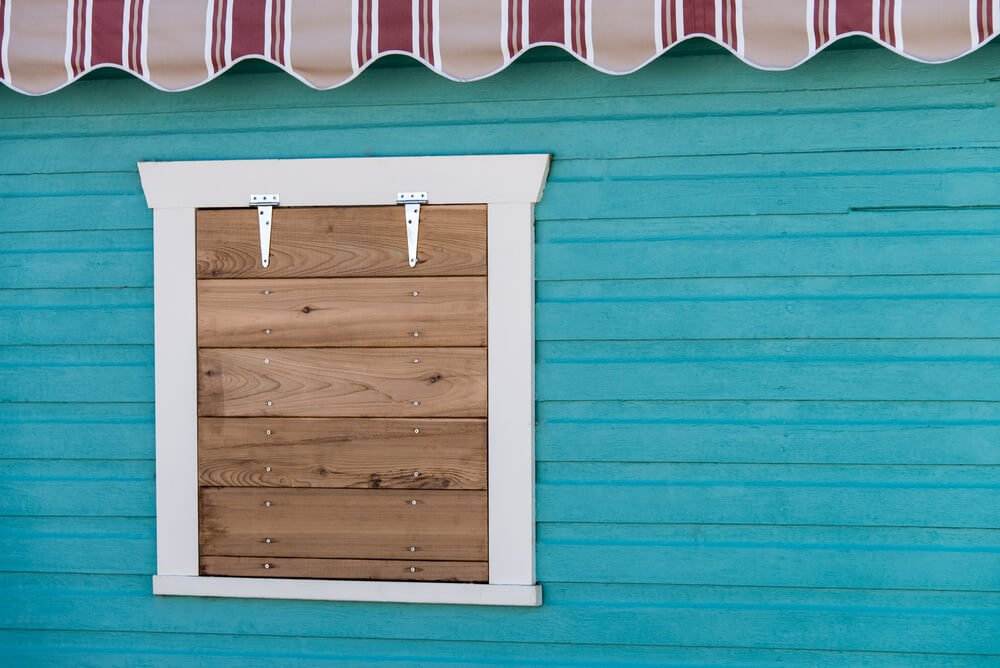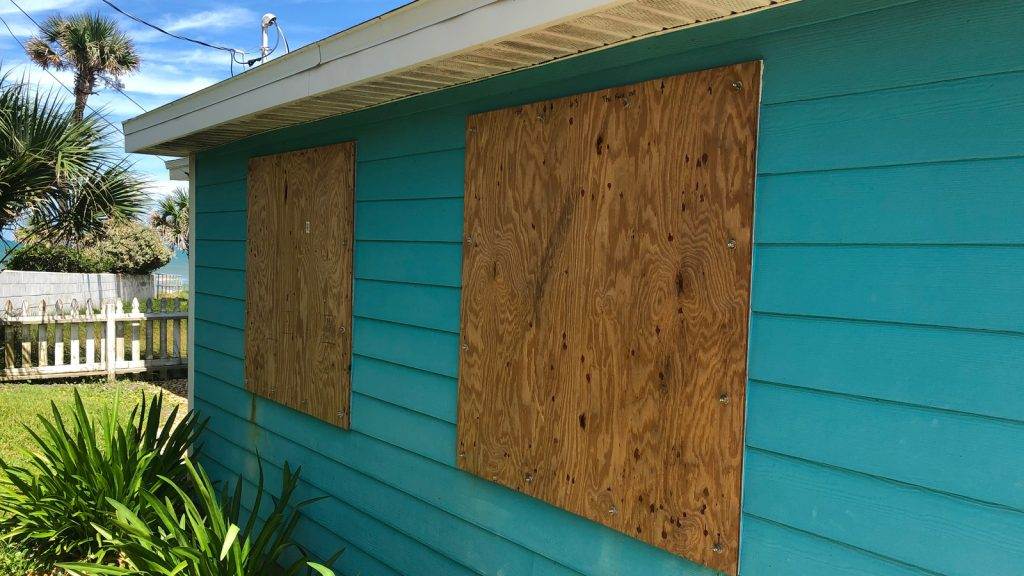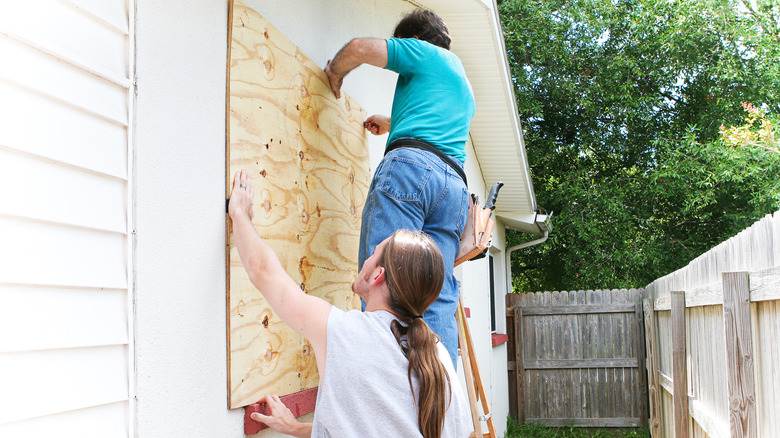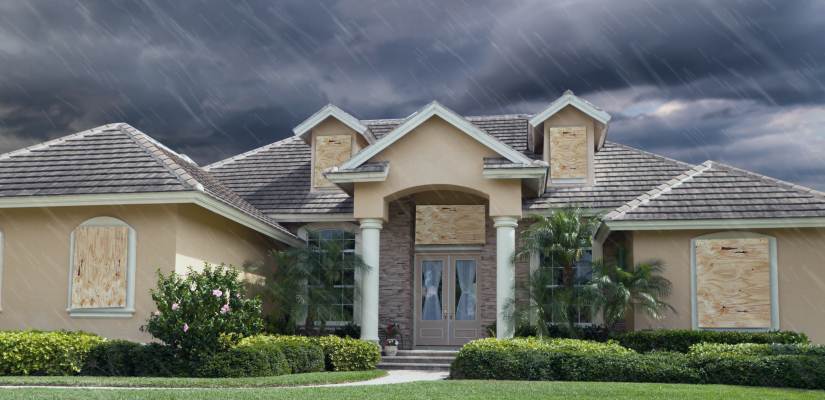Picture this: a fierce hurricane making its way towards your home, with winds howling and rain pounding against your windows. As you anxiously grip onto any sturdy surface you can find, you can’t help but wonder – should I have invested in hurricane windows? While the decision to upgrade your windows can seem daunting, with the cost and installation process involved, the peace of mind and protection they provide during a storm is invaluable. In this article, we will explore the benefits of hurricane windows and help you decide if they are truly worth it in the long run.
1. What are hurricane windows?
Hurricane windows, also known as impact windows or storm windows, are specially designed to withstand the strong winds and flying debris associated with hurricanes and severe storms. They are constructed using laminated or tempered glass that is layered with a strong plastic film or resin. These windows are designed to provide a high level of protection for homes and buildings during extreme weather conditions.
1.1 What makes windows hurricane-resistant?
The key feature that makes hurricane windows resistant to the impact of high winds and debris is their construction. Unlike traditional windows, hurricane windows are made with reinforced glass that is capable of withstanding the force of strong gusts. Additionally, the glass is typically laminated or tempered to prevent shattering. The combination of reinforced glass and shatter-resistant technology makes hurricane windows highly resistant to damage caused by natural disasters.
1.2 Types of hurricane windows
There are various types of hurricane windows available on the market, each offering different levels of protection and functionality. Some common types include:
- Laminated Glass Windows: These windows are made by sandwiching a layer of plastic film between two sheets of glass. This design allows the glass to remain intact even if it breaks, preventing shards from flying into the living space.
- Tempered Glass Windows: Tempered glass is processed to increase its strength and durability. When broken, tempered glass shatters into small, pebble-like pieces instead of sharp shards, reducing the risk of injury.
- Polycarbonate Windows: These windows are made from a strong, clear plastic material known as polycarbonate. While not as visually appealing as glass, polycarbonate windows provide excellent impact resistance and are often used in commercial buildings.
- Combination Windows: Some hurricane windows combine different materials to offer enhanced protection. For example, a window may have a laminated glass exterior with an interior layer of polycarbonate for increased strength.
2. Advantages of hurricane windows
Investing in hurricane windows offers several key advantages for homeowners. Let’s explore some of the benefits these windows provide:
2.1 Protection against strong winds
The primary benefit of hurricane windows is their ability to withstand the extreme forces generated by strong winds. These windows are specifically engineered and tested to resist impact from debris propelled by hurricane-force winds. By installing hurricane windows, homeowners can significantly reduce the risk of damage to their property and increase the safety of occupants during severe weather events.
2.2 Enhanced security
In addition to protecting against hurricanes, impact windows also provide enhanced security for homes. Due to their sturdy construction, these windows are much more difficult to break than standard windows. This makes it harder for intruders to gain unauthorized access to the property, providing homeowners with peace of mind and an added layer of protection.
2.3 Noise reduction
Hurricane windows are designed to provide excellent noise insulation, reducing the amount of external noise that enters a home. The multi-layered glass and additional insulation in these windows act as a sound barrier, creating a quieter and more comfortable living environment. This is particularly beneficial for homes located near busy roads, airports, or other sources of excessive noise.
2.4 Energy efficiency
Another advantage of hurricane windows is their energy efficiency. These windows are typically sealed tightly, preventing air leakage and reducing drafts. This helps to maintain a comfortable indoor temperature year-round, reducing the need for excessive heating or cooling. As a result, homeowners may experience lower energy bills and enjoy greater energy savings over time.
2.5 Insurance benefits
Many insurance companies offer incentives for homeowners who install hurricane windows. By investing in these windows, homeowners may be eligible for discounts on their insurance premiums. Insurance providers recognize the added protection and reduced risk of damage that hurricane windows provide, leading to potential cost savings for homeowners.

This image is property of thumbor.forbes.com.
3. Considerations before installing hurricane windows
While hurricane windows offer numerous advantages, there are important factors to consider before making the decision to install them:
3.1 Cost
The cost of hurricane windows can vary depending on factors such as size, material, and installation requirements. Compared to traditional windows, hurricane windows often have a higher upfront cost. Homeowners should ensure they have a clear understanding of the overall investment required, including any additional costs associated with installation, permits, and customization.
3.2 Local building codes
Before installing hurricane windows, it is crucial to check local building codes and regulations. Some areas have specific requirements for window protection during hurricanes. These regulations may dictate the type and rating of windows that must be installed. It is important to consult with local authorities or a professional installer to ensure compliance with local building codes.
3.3 Long-term investment
Investing in hurricane windows is a long-term commitment. Homeowners should consider their future plans for the property, as well as their overall budget, before making a decision. While hurricane windows offer significant benefits, it is essential to evaluate the potential return on investment and determine if it aligns with personal financial goals.
3.4 Aesthetics
One common concern homeowners have when considering hurricane windows is the impact on the aesthetics of their home. Some people worry that impact-resistant windows may not match the design or style of their property. However, modern advancements in window technology have led to a wide range of options that can complement various architectural styles. Homeowners can choose from different frame materials, finishes, and styles to find hurricane windows that blend seamlessly with their home’s appearance.
4. Assessing the risk of hurricanes
Before making the decision to install hurricane windows, it is essential to assess the level of risk posed by hurricanes in the specific area where the property is located.
4.1 Identifying hurricane-prone areas
Certain regions are more prone to hurricanes than others. Coastal areas, for example, are often at a higher risk due to their proximity to the ocean. Homeowners should research historical hurricane activity and consult with local authorities or meteorological services to determine the level of risk in their area.
4.2 Historical hurricane data
Studying historical hurricane data is an important step in understanding the frequency and severity of hurricanes in a particular location. By analyzing past storm patterns, homeowners can gain valuable insight into the likelihood of future hurricane activity and make informed decisions about installing hurricane windows.
4.3 Local evacuation plans
In addition to understanding the risk of hurricanes, homeowners should familiarize themselves with local evacuation plans. While hurricane windows can provide protection, it is essential to have a comprehensive emergency plan in place. Understanding evacuation routes and shelter locations can help ensure the safety of occupants during a severe storm.

This image is property of eurexshutters.com.
5. Comparing hurricane windows to other protection methods
While hurricane windows are an effective solution for protecting homes from hurricanes, there are alternative methods that homeowners can consider. Let’s explore some common alternatives:
5.1 Plywood and storm shutters
One popular alternative to hurricane windows is the use of plywood or storm shutters. Plywood can be installed over windows to provide temporary protection during a storm. Storm shutters, on the other hand, are durable coverings that can be drawn across windows when a storm is approaching. While both options can offer some level of protection, they may not provide the same level of impact resistance and convenience as hurricane windows.
5.2 Impact-resistant films
Another option is the application of impact-resistant films to existing windows. These films are designed to strengthen the glass, making it more resistant to shattering. While this can be a cost-effective solution, it is important to note that films may not provide the same level of protection as hurricane windows and may need to be replaced periodically.
5.3 Fabric hurricane screens
Fabric hurricane screens are a newer alternative that offers protection against debris and strong winds. These screens are made from a durable mesh material and can be easily installed over existing windows. While fabric screens can be effective in high-speed wind situations, they may not be as impact-resistant as hurricane windows and may require regular maintenance.
6. Installation process and maintenance of hurricane windows
Installing hurricane windows is a complex process that typically requires professional assistance. Hiring a reputable installer with experience in hurricane window installation is crucial to ensure proper installation and maximum performance. Professional installers have the knowledge and expertise to ensure that the windows are installed correctly and meet all necessary building codes and regulations.
6.1 Hiring a professional installer
When selecting an installer, homeowners should consider factors such as reputation, experience, and licensing. It is advisable to obtain multiple quotes and conduct thorough research before making a decision. Asking for references and checking online reviews can provide further insight into a company’s reliability and customer satisfaction.
6.2 Permits and building regulations
Before installing hurricane windows, it is important to obtain any necessary permits and ensure compliance with local building regulations. Failure to adhere to these requirements can lead to fines and delays. Professional installers are typically familiar with the permitting process and can assist homeowners in navigating this aspect of the installation.
6.3 Regular maintenance and inspections
To ensure continued performance and longevity, hurricane windows should be subject to regular maintenance and inspections. This includes cleaning the windows, checking for any signs of damage or wear, and ensuring proper sealing and functionality. Professional maintenance services can help homeowners identify and address any issues promptly, maximizing the lifespan and effectiveness of the windows.

This image is property of images.contentstack.io.
7. Return on investment for hurricane windows
Investing in hurricane windows can offer several financial benefits for homeowners. Let’s explore some of the potential returns on investment:
7.1 Potential savings on insurance premiums
One significant financial benefit of installing hurricane windows is the potential for reduced insurance premiums. Many insurance companies offer discounts to homeowners who take proactive measures to protect their property from natural disasters. By installing hurricane windows, homeowners demonstrate a commitment to risk mitigation, which can result in lower insurance costs over time.
7.2 Increased home value
Hurricane windows can also increase the value of a home. Potential buyers are often willing to pay a premium for properties with added protection against severe weather events. Homes equipped with hurricane windows are seen as more desirable and may command a higher selling price in the real estate market.
7.3 Energy savings
As mentioned earlier, hurricane windows offer energy efficiency benefits. By reducing drafts and air leakage, these windows can help maintain a consistent indoor temperature, resulting in energy savings. Over time, the reduced need for heating and cooling can lead to lower energy bills and increased savings for homeowners.
8. Common misconceptions about hurricane windows
There are several common misconceptions associated with hurricane windows. Let’s debunk a few of these misunderstandings:
8.1 ‘Hurricane-proof’ versus ‘hurricane-resistant’
Hurricane windows are often referred to as ‘hurricane-resistant,’ but it is important to note that no windows are completely ‘hurricane-proof.’ While hurricane windows are designed and tested to withstand the impact of hurricane-force winds and debris, there is still a possibility of damage under extreme conditions. Homeowners should have realistic expectations and understand that these windows greatly reduce the risk of damage but cannot guarantee 100% protection.
8.2 Maintenance-free windows
Another misconception is that hurricane windows require no maintenance. While hurricane windows are durable and designed to withstand harsh conditions, regular maintenance is still necessary. Cleaning, inspecting for damage, and ensuring proper sealing are essential to maximize the lifespan and performance of these windows.
8.3 Window replacement versus retrofitting
Some homeowners believe that replacing all existing windows with hurricane windows is the only option for protection. However, retrofitting existing windows with impact-resistant materials can be a viable alternative. Retrofit solutions involve reinforcing existing windows with additional layers of protection, such as laminated glass or impact-resistant films. Retrofitting can be a cost-effective solution for homeowners who do not want to replace all their windows.

This image is property of empire-s3-production.bobvila.com.
9. Case studies: Real experiences with hurricane windows
To gain a better understanding of the effectiveness of hurricane windows, let’s explore some real-life experiences of homeowners who have installed them:
9.1 Stories of homes protected by hurricane windows
Many homeowners have shared stories of how hurricane windows provided invaluable protection during severe storms. These windows have been credited with preventing catastrophic damage and protecting occupants from harm. There are numerous accounts of hurricane windows withstanding the impact of flying debris and high winds, keeping properties secure and intact.
9.2 Challenges and lessons learned
While hurricane windows have proven their effectiveness, there have also been challenges reported by homeowners. Some have experienced issues with installation or encountered difficulties in finding reputable installers. Others have faced the limitation of certain frame materials or aesthetic considerations. It is crucial for homeowners to conduct thorough research and choose the right hurricane windows and installer to avoid potential challenges.
10. Conclusion
Hurricane windows are a worthy investment for homeowners in hurricane-prone areas. Their ability to withstand strong winds, enhance security, reduce noise, improve energy efficiency, and potentially lower insurance premiums make them an attractive option. However, homeowners should carefully consider their budget, research local building codes, and evaluate long-term investment before making a decision. By weighing the advantages, exploring alternative protection methods, and understanding the maintenance requirements, homeowners can make an informed choice regarding the installation of hurricane windows.

This image is property of empire-s3-production.bobvila.com.




